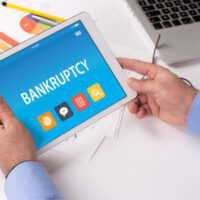What Debts Are Not Discharged in Bankruptcy?

The point of filing for bankruptcy is to get a fresh start. That fresh start requires that bankruptcy wipe out your outstanding debts, which, as a general rule, it does. But there are some debts that get special treatment and that are not discharged in a bankruptcy.
Non-Dischargeable Debt
The following are debts or obligations that will survive the bankruptcy—that is, even after your bankruptcy is granted, and your other debts are discharged, these will still remain due and owing.
- Family law obligations – these include back owed child support or alimony. You will be asked at your bankruptcy hearing whether you have such obligations. As you can imagine, as a matter of policy, courts do not allow people to discharge debt owed to children (such as child support) or to ex husbands or wives.
- Student loans – however, these are not impossible to discharge, and the political climate may make it easier to discharge such debts, or parts of them in the future. It does require a separate motion and adversarial proceeding to discharge student loans.
- Any financial penalty or fine related to a criminal law violation, such as restitution to a victim, or payment of money to the state.
- Most tax debts that are from the most recent three years
- Any debt that you don’t list in your bankruptcy paperwork. This is why it is so important to give thought to the paperwork, fill it out completely, and give your bankruptcy attorneys all the information they need to fill out the documents for you.
- Any verdict, settlement, or money that you owe to anyone as a result of your having driven while under the influence or driving while intoxicated.
- In some cases, debts that are incurred after your discharge, from a contract or agreement made before your bankruptcy, could survive. The most common scenario where this happens are homeowners or condominium dues. Dues that accrue or become due and owing after the bankruptcy discharge are sometimes, depending on the nature of the debt, still valid—even though the contract creating the obligation may have been entered into before the bankruptcy.
Debt That May be Non-Dischargeable
Sometimes, debts are dischargeable, unless someone like a creditor objects. In most cases, creditors don’t object, and often don’t even show up to your meeting of creditors (341 meeting). If creditors do object, these debts may be non dischargeable:
- Any debt that you incurred fraudulently—such as debt incurred after you knew that you were going to file for bankruptcy
- Any cash advance or credit card charge of $1,150 or more, to purchase non-essential (luxury) items, used within 60 days of filing the bankruptcy petition
- Any debt from any breach of trust. This can include theft, fraud, larceny, or other breach of trust claims.
Call the West Palm Beach bankruptcy lawyers at Kelley Kaplan & Eller at 561-264-6850. We help consumers get the fresh start in bankruptcy that they need.



